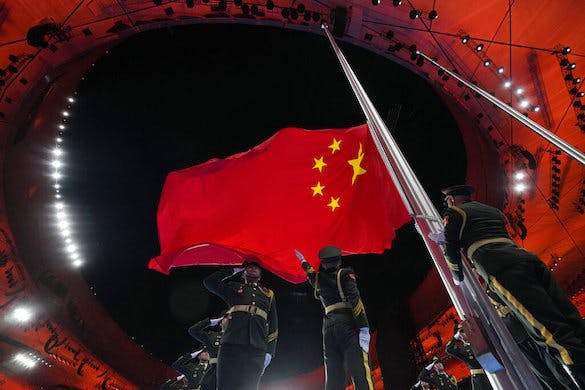Pentagon Blind to Vast Majority of Researchers Working on Its Grants, Despite Communist China’s Infiltration
The People’s Liberation Army has sponsored more than 2,500 military scientists to study abroad.

Our Defense Department has little to no oversight of the vast majority of researchers working on its grants, despite the widespread infiltration of the programs being systematically pursued by the Chinese military. The Pentagon knows the name of only the principal investigator on a grant, not of the many researchers working on it, and does not conduct security checks on any of them.
Given the risks posed when it comes to our military advantage, which is essential to protecting our national security, this failure to provide levels of protection seems foolish at best, negligent at worst. All the more so given that in the past 15 years the People’s Liberation Army reportedly “has sponsored more than 2,500 military scientists and engineers to study abroad” as part of a deliberate effort to supercharge its military modernization.
According to a 2018 Australian Policy Institute report, these Chinese military scientists most often target the United States and other members of the “Five Eyes,” an intelligence-sharing bloc comprising America, Britain, Australia, New Zealand, and Canada.
According to ASPI, nearly all the military scientists sent abroad are members of the Chinese Communist Party, return to China as ordered, and hide their military affiliations from their employers abroad. This is such a widespread effort that the Chinese military has a phrase for it: “picking flowers in foreign lands to make honey in China.”
Even with our limited visibility into who is working on American military grants, we are aware of hundreds of examples of individuals acquiring secrets and know-how on American military projects that they can then replicate when back in China.
Two such individuals are Chen Song, a researcher at Stanford University, and Yanquing Ye, who conducted espionage for the PLA while serving as a researcher at Boston University’s Department of Physics, Chemistry and Biomedical Engineering. Both were members of the Chinese military, and were arrested for lying about their military status.
The reason these researchers are being arrested for lying is that what they are doing is itself not currently illegal, which of course should change. This sort of theft, espionage, and double-dealing for the explicit military gain of an adversary is a clear national security problem.
Or take the 162 researchers that, after conducting sensitive military research for the American military at Los Alamos, the lab where nuclear weapons were created, returned to China and drove key breakthroughs in the PLA’s military modernization, including in hypersonics, deep-earth penetrating warheads, unmanned autonomous vehicles, jet engines, and submarine noise reduction. Their story is sketched in the report from Strider Technologies about which I wrote earlier this week.
Or take a 2020 open-source, unclassified analysis of resumes and research papers, conducted at the Department of Defense, which showed that there were more than 100 Chinese students directly associated with denied entities (military, intelligence, etc.) conducting research at four universities in the Washington, D.C., area.
At those same four universities, DoD funded a couple dozen grants for research on — to name just a few examples — tactical mobile radios in a jamming environment, sensor array signal processing algorithms, and developing decoy computer networks to entice and trap attackers into believing they’ve penetrated a real network.
We also know that the lead researcher on that decoy network research wrote a paper in 2017 that described how to attack a cloud service provider using the vulnerabilities of a software-defined network design. Whom did he acknowledge for providing grants for that research? The National Science Foundation of China, the National Key R&D program of China, and the U.S. Office of Naval Research.
Those who want this research to remain unsecured will say that it’s “basic” research and therefore does not need to be protected. They worry that any security screening will destroy the open, collaborative research environment that is a hallmark of our country, and scare off foreign talent.
There is no doubt that security measures need to be implemented carefully. But these examples, of which there are many more, make it clear that there is explicit, and essential, military value in these projects and that our openness is being exploited, intentionally, by a key adversary. Do we really want members of the Chinese military — our strategic competitor — working on our sensitive military projects?
Something is clearly wrong with this picture. Yet, aside from the Trump administration’s decision to cut off visas for high-level researchers associated with banned entities, we have been doing little to stop it.
The Department of Defense cannot solve this issue alone. Federal law enforcement, Congress, academia, private industry, and various executive branch entities, including NIH and the Department of State, need to come together to find a workable solution. Yet solve it, they must.
This theft represents the erosion of our military edge. If our military equipment is copied or compromised by the time it’s put into use, we simply won’t be able to defend our nation in the event of a crisis or a threat to our country.
Make no mistake: This is China’s intent — to undermine our ability to defend ourselves and our allies. We are making it too easy. We must stop being the research and development base for China, and take meaningful action to defend ourselves.
Ms. Vik previously served as deputy director of the Protecting Critical Technology Task Force established by Secretary of Defense Mattis.

